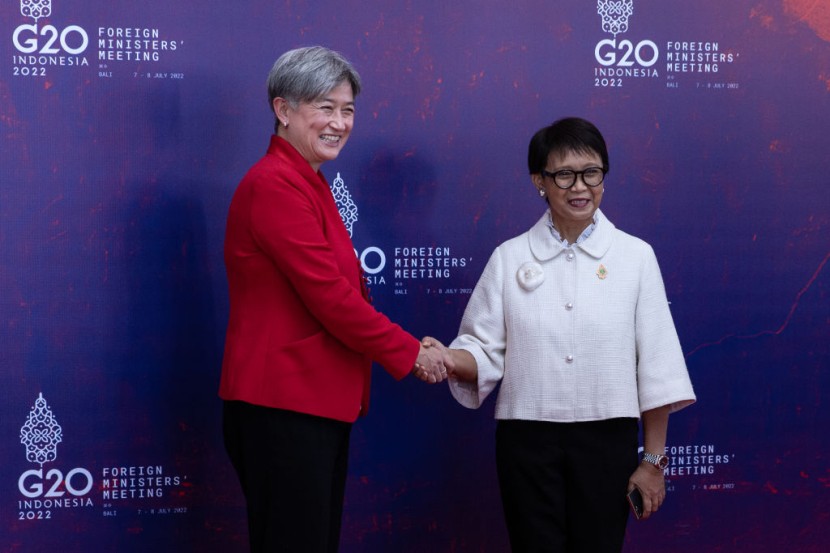
Chinese and Australian counterparts have improved bilateral relations following a stutter with Beijing after the adversarial Morrison era.
Recent dialogue between China and Australia has, according to top diplomats from both countries, improved bilateral relations after the exit of former Prime Minister Scott Morrison.
China, Australia Ties Continue After Morrison Era
Australia and China are getting along now that former Prime Minister Scott Morrison has been replaced.
A G20 summit is set to take place in Indonesia later this month, and both Chinese President Xi Jinping and Australian Prime Minister Anthony Albanese are expected to attend, reported Anadolu.
According to a Chinese Foreign Ministry readout, Australian Foreign Minister Penny Wong stated that both countries have effective communication and contact. She noted it was the fifth call in five months.
Wong stated that the two countries' interactions have improved due to unwavering efforts. According to the readout,
the Australian government acknowledges the one-China policy as a step toward establishing a more secure and advantageous partnership with Beijing based on mutual trust, noted Yenisafak.
According to Wang Yi, a top Chinese diplomat, the differences are secondary to the common interests of Beijing and Canberra.
Chinese, Australian Bilateral Relations
Bilateral relations with China were strained when the ex-PM drew Australia into the US-led Indo-Pacific alliance as the west seeks to investigate China's role in the COVID-19 pandemic.
The former Morrison era was when Joe Biden pushed Australia to join the trilateral AUKUS with the US and the UK to build nuclear submarines, which infuriated Beijing.
Under former Prime Minister Scott Morrison, bilateral relations between Beijing and Canberra deteriorated as Australia joined Western allies in calling for an investigation into the origins of the COVID-19 pandemic, as well as launching a trilateral nuclear cooperation with the United Kingdom and the United States, known as the Nuclear Posture Review AUKUS, per BBC.
Another association called the Quad is also led by Washington, with Japan and India as members. The informal security alliance is geared to stop the PLA's military and economic power expansion in the larger Asia-Pacific region. But going beyond Canberra's support of American initiatives, which has changed after the exit of Morrison, Now, partners recognize the importance of their countries' interests over US hegemony.
Wang stresses the change and temporality of the formerly rough and adversarial relationship driven by Canberra's western allies, which has been replaced by tolerance. Focus on what will benefit them in a mutually beneficial setup more for them than the international community demands.
At one point, the Chinese mainland government placed a sanction on trade with Canberra in 2020. The volume of mutual trade was worth $160 billion.
Both must conform to the unanimous agreement on the basic alignment of a broad strategic partnership, affirm the spirit of reciprocal respect, pursue commonality while setting aside variances, and collaborate forward into a mutual advantage and win-win results, as stated by the Chinese diplomat.
He said these are the steps to get things back on track between the two countries.
Ms. Wong stated that Canberra wants to do the right thing and deal with issues within the Australia-China comprehensive strategic partnership framework. It is still being determined if the G20 will see a meeting between Beijing and Canberra.
China and Australia have amended bilateral relations that the former Morrison era took the wrong path; current PM Anthony Albanese is working for a better relationship.
Related Article: Former Australian PM Paul Keating Slams Quad, G7 for Excluding China, Urges US To Withdraw from AUKUS Security








